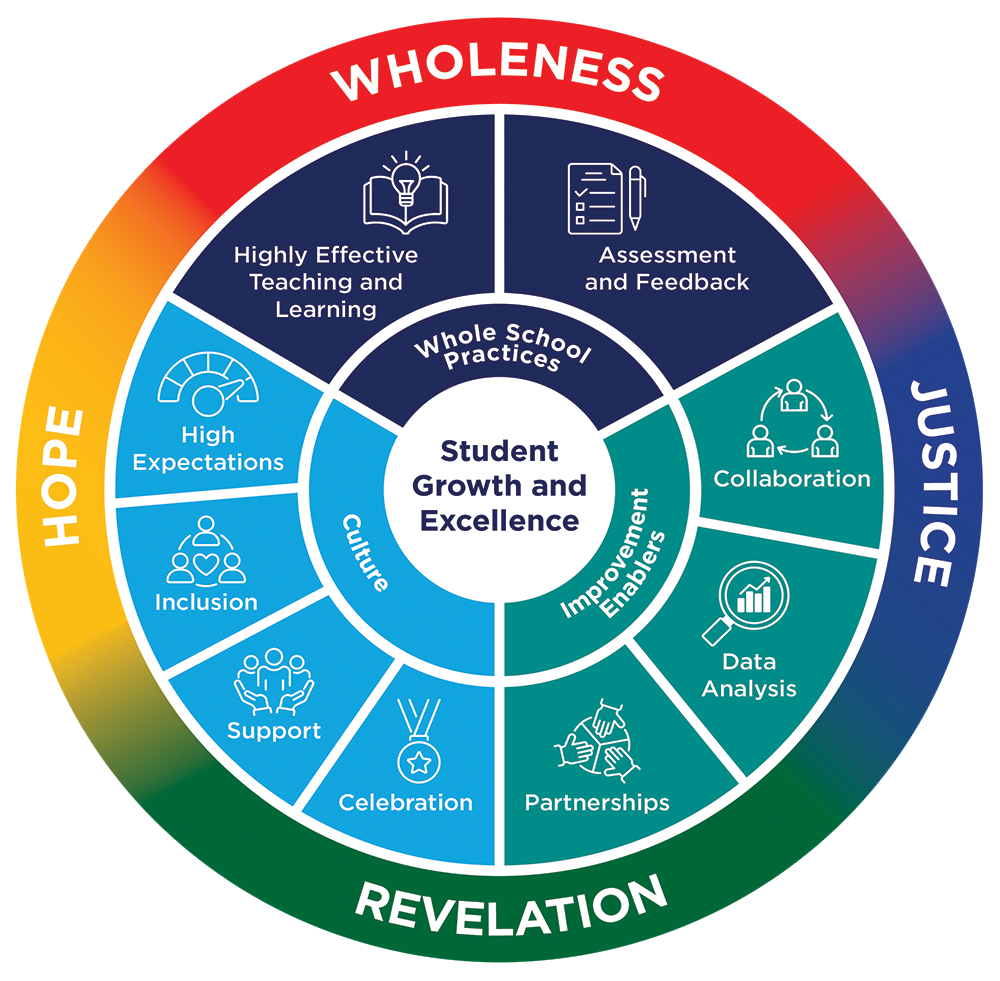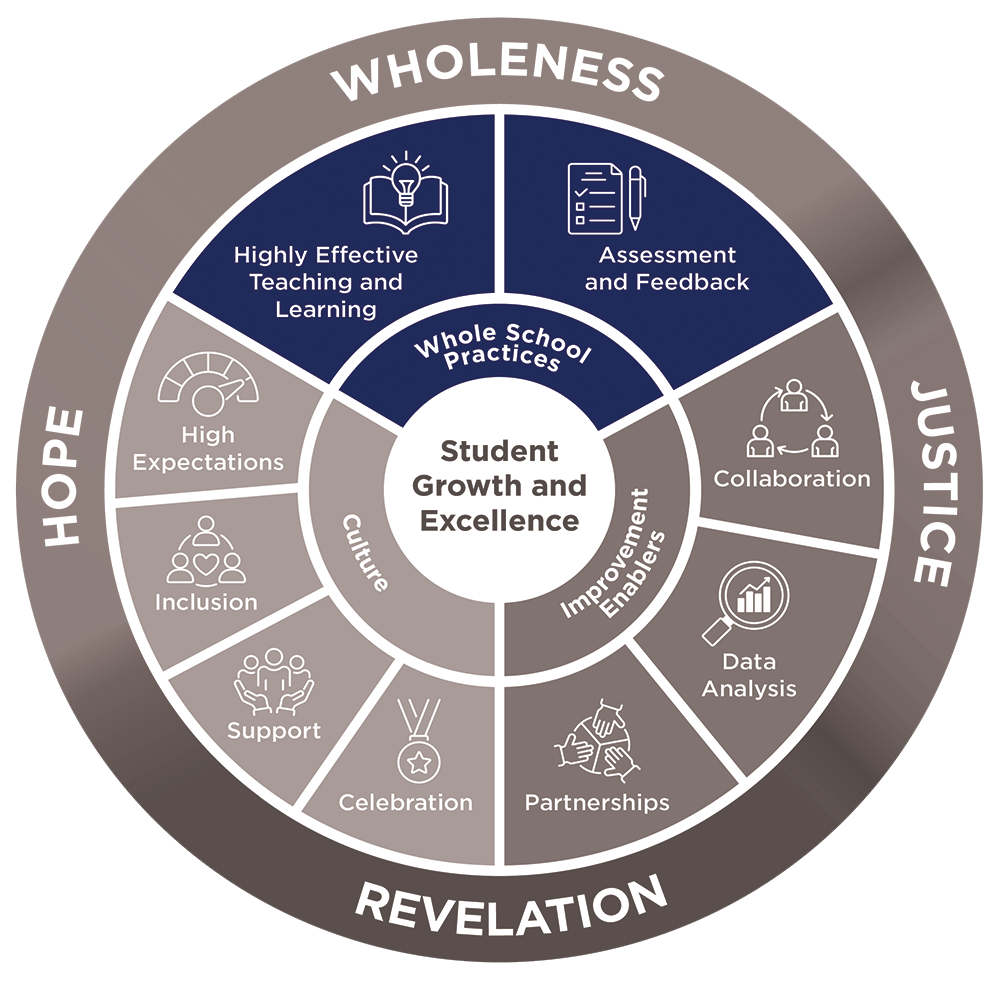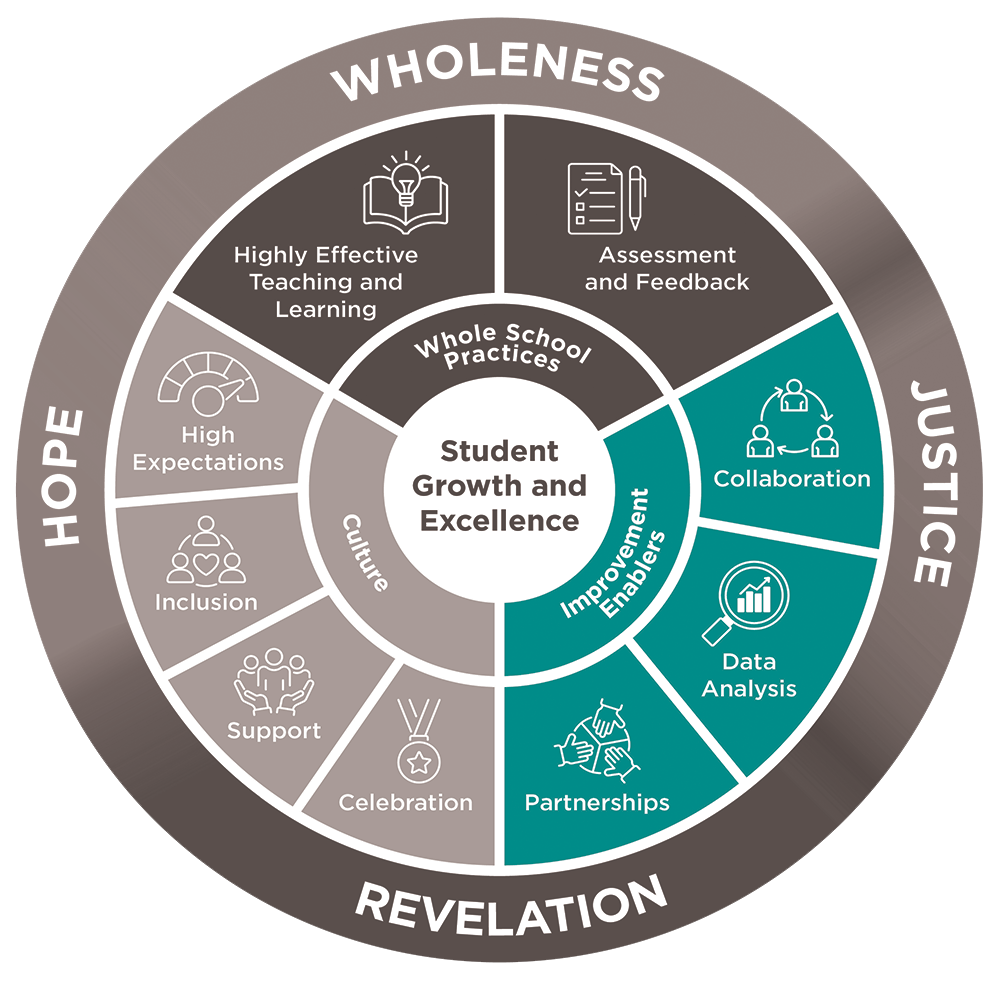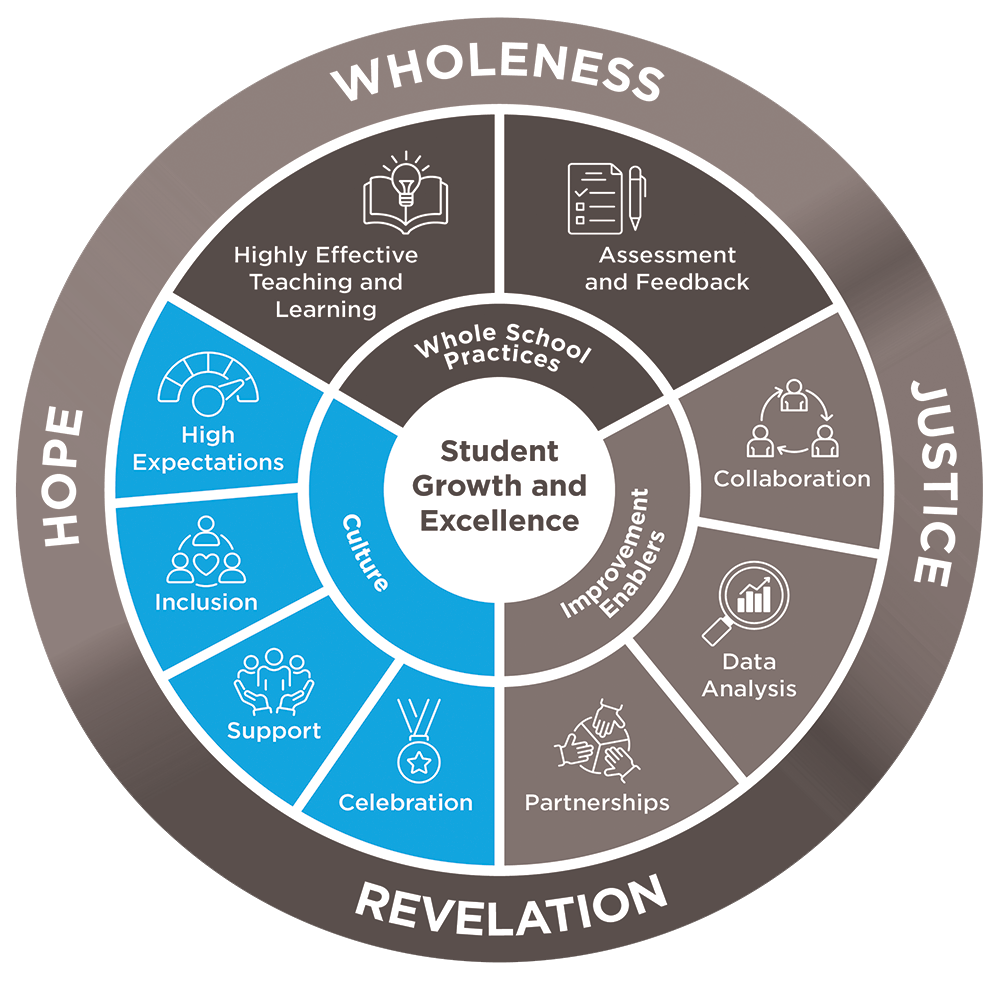
Our Enlivened Learning Framework embodies our philosophy of integrating faith and wellbeing to nurture deep, impactful learning.
The framework brings together interrelated domains and elements to be viewed through the lens of our core values (Wholeness, Hope, Justice and Revelation). It fosters the use of a shared language and consistent practices across the school – ensuring coherence in teaching, learning and wellbeing to drive student growth and excellence.
Grounded in contemporary research, the framework aligns with the Archbishop’s Charter for Catholic Schools and the NSW curriculum reform agenda. It also complements established frameworks for high-impact teaching strategies, wellbeing and inclusive practices that support diverse learning needs.
Through embracing the principles and expectations of the Sydney Catholic Schools Parent Charter, parents collaboratively foster the holistic development of their children, strengthening our nurturing partnership.
Student Growth and Excellence
Student Growth and Excellence, the centre of our learning framework, commits to nurturing individuals who are not only knowledgeable but also confident, resilient, and lifelong learners. Growth inspires students to take ownership of their learning, embrace challenges, and view mistakes as valuable opportunities to learn. This commitment to continuous improvement leads to excellence and lasting success.

Whole School Practices
Select other frameworks below:
Highly Effective Teaching and Learning promotes student motivation by fostering safe, inclusive, and engaging environments that encourage active student participation. This approach enhances learning and wellbeing, leading to improved academic outcomes and stronger emotional, spiritual, and social development (Wholeness).
Assessment and Feedback are crucial for student growth, offering clarity, direction, and support. Assessment clarifies current understanding and misconceptions, enabling teachers to differentiate instruction and provide actionable feedback that guides students’ next steps. This effective feedback empowers students to reflect on their learning journey, connect it to their personal story (Revelation), self-regulate their learning, and take ownership of their growth.

Improvement Enablers
Select other frameworks below:
Collaboration develops essential communication, critical thinking, and self-management skills. It builds confidence, strengthens inclusion, and cultivates positive relationships, improving both learning outcomes and wellbeing through shared responsibility and connection. Collaboration respects diverse viewpoints, which grows community capacity to uphold dignity for all (Justice and Hope).
Effective Data Analysis empowers teachers to create learning experiences that are student-centred. By highlighting strengths, gaps, and growth areas, data ensures every student receives targeted learning and wellbeing support. This allows for differentiated and responsive teaching, making learning purposeful, relevant, and tailored to diverse needs. By identifying barriers to learning and wellbeing, data analysis ensures policies and practices are just and effective for all students (Justice).
Partnerships between students, staff, parents, parish promote a shared commitment to faith, learning and wellbeing. When all stakeholders work together, students are better supported across home, school, and social environments. Partnerships build shared understanding and collective action (Revelation) to support all students, ensuring equitable access to resources and opportunities (Justice).

Culture
Select other frameworks below:
High Expectations across all dimensions (Wholeness) improves student achievement by motivating students to aim higher, persevere through challenges, and invest greater effort to reach their capacity/maximise their abilities. This boosts confidence, instilling a sense of optimism and purpose (Hope).
Inclusion enhances learning and wellbeing by ensuring all voices are heard and valued; fostering dignity, support and respect (Justice). When students experience a sense of belonging, they feel safe, confident, and ready to engage (Hope). Inclusive environments also strengthen peer relationships and foster a positive, connected school community (Wholeness).
Support enhances learning by addressing the whole student, fostering confidence, resilience and focus. Supportive environments help students feel valued, take learning risks, and stay engaged. Support systems: academic, wellbeing and spiritual (Wholeness) address challenges, prevent disengagement, and nurture resilience, instilling aspiration for every student (Hope).
Celebration enhances learning and wellbeing by boosting confidence, motivation, and engagement. Recognition reinforces positive behaviours and acknowledges effort, encouraging persistence and resilience. Reflecting Catholic teaching, acknowledging milestones and achievements (Revelation) reinforces the journey of growth and instils hope for future accomplishments, affirming each student’s inherent worth and dignity (Hope).
